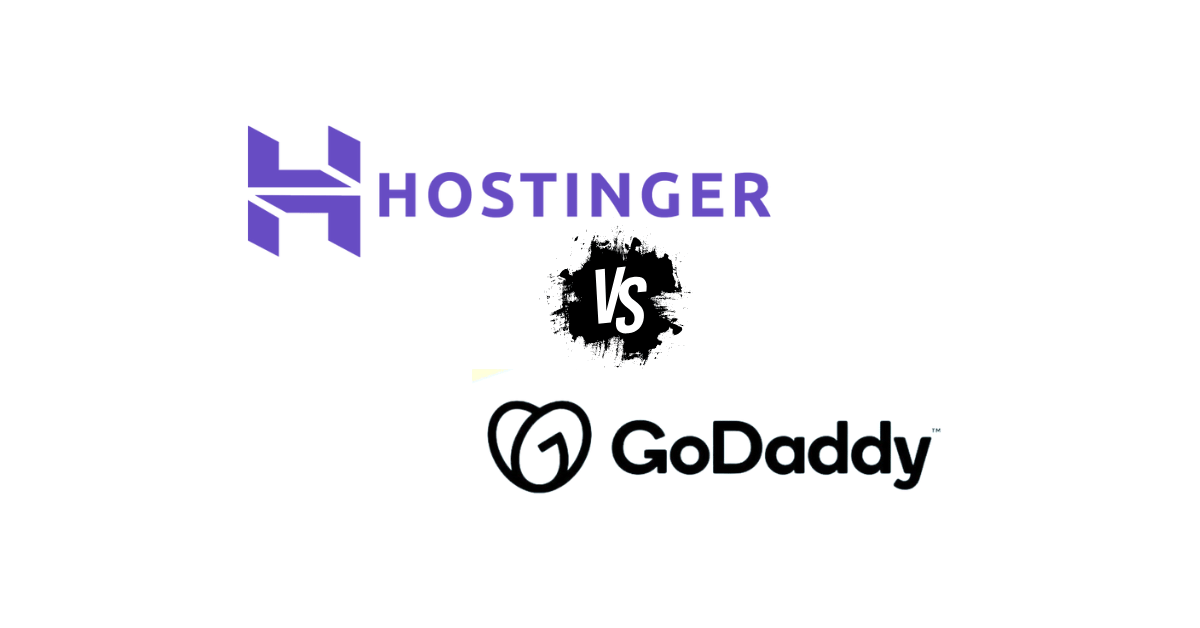Today, we’re jumping into a detailed comparison of Hostinger and GoDaddy, two massive names in web hosting. If you’re struggling to pick the right hosting provider, don’t worry. We’ll cover everything—pricing, performance, ease of use, security, and customer support. By the end, you’ll know which one suits your needs best. Let’s get started!
Who Are Hostinger and GoDaddy Best For?
Hostinger and GoDaddy are big players with years of experience. Hostinger shines for small to medium projects like personal blogs or small business websites. It’s affordable and packed with features. GoDaddy, though, offers tons of hosting plans, perfect for anyone needing scalability or a one-stop shop for domains and hosting.
For example, a blogger starting out might love Hostinger’s low prices. Meanwhile, a growing online store could lean toward GoDaddy for its scaling options. Let’s break it down further with pricing.
Pricing: Which Offers Better Value?
Pricing matters a lot, right? Hostinger wins hands-down here. Its shared hosting starts at just $2.49 per month. Compare that to GoDaddy’s Economy plan at $4.99 per month—it’s a big difference! Hostinger’s Premium plan even hosts up to 100 websites and includes 100 email accounts.
GoDaddy’s basic plan only supports one website and one email. Even for VPS hosting, Hostinger starts at $4.99 monthly, while GoDaddy’s is nearly double at $8.99. Both offer 30-day money-back guarantees, but Hostinger gives more bang for your buck.
Here’s a quick comparison table:
| Feature | Hostinger | GoDaddy |
|---|---|---|
| Shared Hosting Price | $2.49/month | $4.99/month |
| Websites Allowed | Up to 100 | 1 |
| Email Accounts | 100 | 1 |
| VPS Starting Price | $4.99/month | $8.99/month |
Winner? Hostinger. It’s cheaper and offers more features—ideal for budget-friendly SEO optimization.
Performance: Speed, Uptime, and Traffic Handling
Performance is key for any website. Hostinger nails it with 100% uptime over two months of testing—no downtime at all! Its response time averaged 175 milliseconds, super fast for SEO standards. GoDaddy hit 99.98% uptime, with only 16 minutes down, and a 179-millisecond response.
GoDaddy slightly beats Hostinger in loading speed, though. Its largest contentful paint (LCP) was 1.47 seconds, while Hostinger’s was 1.72 seconds. Both are under Google’s 2.5-second mark, great for SEO rankings. Hostinger also has nine server locations worldwide, compared to GoDaddy’s three.
In traffic tests with 50 users, Hostinger stayed steady, while GoDaddy had small hiccups. Winner? Hostinger, thanks to perfect uptime and more server options.
Here’s a performance table:
| Metric | Hostinger | GoDaddy |
|---|---|---|
| Uptime | 100% | 99.98% |
| Response Time | 175 ms | 179 ms |
| Loading Speed (LCP) | 1.72 s | 1.47 s |
| Server Locations | 9 | 3 |
Ease of Use: Dashboards and Tools
Next up, ease of use! Hostinger’s custom hPanel is a dream—clean, simple, and beginner-friendly. It groups tools like hosting, security, and emails neatly. You can install WordPress or activate SSL with one click. GoDaddy uses cPanel, which works but feels technical and cluttered for newbies.
Hostinger also throws in staging environments to test changes safely. GoDaddy offers this too, but only on pricier plans. For instance, a small business owner in 2023 praised Hostinger’s hPanel for making site setup a breeze. Winner? Hostinger—it’s easier for everyone.
Security: Keeping Your Site Safe
Security is huge for protecting your site. Hostinger offers unlimited SSL certificates on all plans. GoDaddy gives you one, but only free for the first year. Hostinger provides weekly backups on its cheapest plan and daily on higher tiers. GoDaddy offers daily backups across all plans.
Hostinger fights DDoS attacks with a free CDN, while GoDaddy’s 24/7 protection lacks details. Plus, Hostinger’s WordPress vulnerability scanner is a unique perk GoDaddy doesn’t have. Winner? Hostinger—its security features are stronger and clearer.
Customer Support: Who’s Got Your Back?
Good support can save the day. Hostinger offers 24/7 live chat, a ticketing system, and an AI chatbot. Wait times are short, and agents are helpful. GoDaddy provides live chat, phone, and text, but my test showed slower chat responses—sometimes needing follow-ups.
Both have solid knowledge bases. In 2022, a user on X raved about Hostinger’s quick chat fixes, while GoDaddy’s phone support got mixed reviews. Winner? Hostinger for faster, reliable help—key for SEO troubleshooting.
Features: Tools and Web Builders
Features make hosting fun! Hostinger includes auto-migration, AI tools, and staging environments. Its web builder offers drag-and-drop ease with 150+ templates. GoDaddy’s builder is solid but less customizable, with just 20 templates. It shines with marketing tools like email and social media integration.
For small businesses, Hostinger’s flexibility wins. A freelancer in 2024 switched to Hostinger for its migration tool and loved it. Winner? Hostinger—more features, better customization.
Here’s a features table:
| Feature | Hostinger | GoDaddy |
|---|---|---|
| Web Builder Templates | 150+ | 20 |
| AI Tools | Yes | No |
| Staging Environment | All Plans | Higher Plans |
| Marketing Tools | Basic | Advanced |
Final Thoughts: Who Wins?
After comparing pricing, performance, ease of use, security, customer support, and features, Hostinger takes the crown. It delivers killer value, a simple interface, top-notch security, and stellar performance. GoDaddy’s a solid pick if you need scalability or love cPanel, though.
For SEO optimization, Hostinger’s speed and uptime boost rankings. Want to try them? Use my links below—thanks for reading, and I’ll catch you next time!
Check them out with these helpful links:
Thanks for reading—see you next time!

